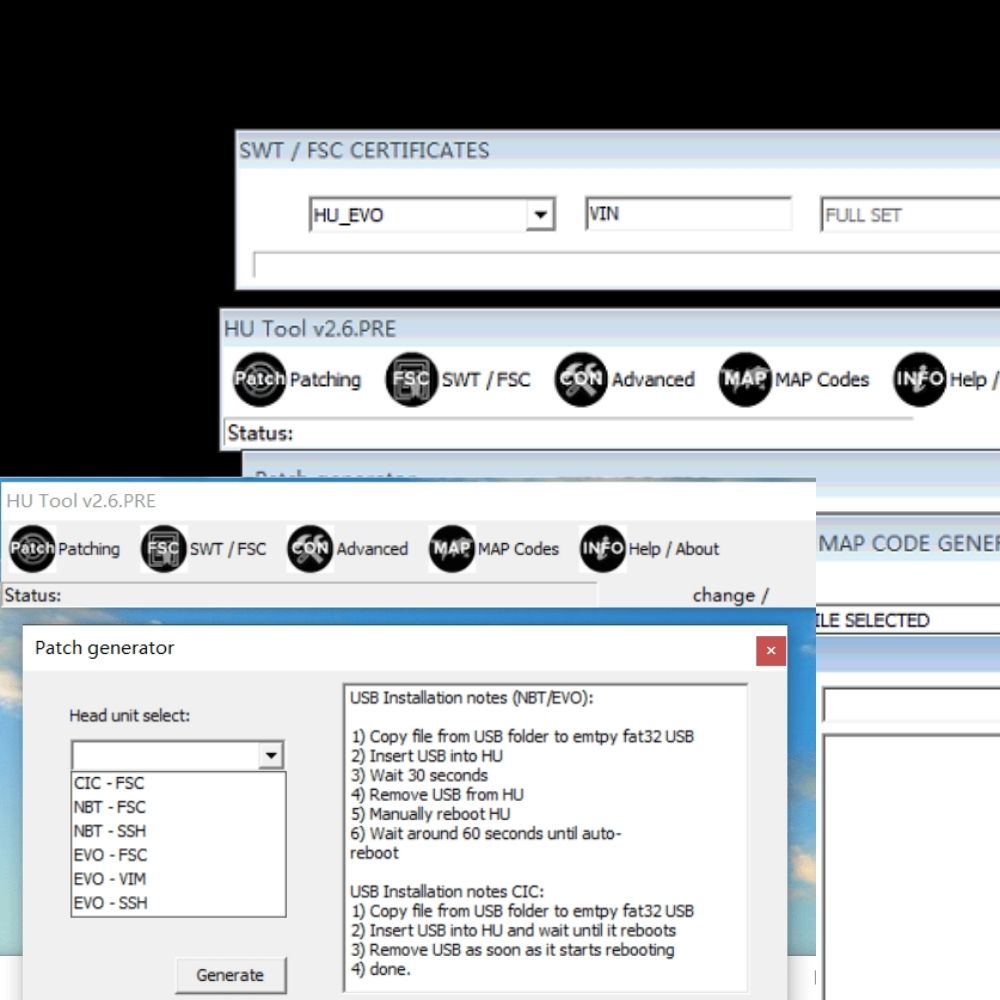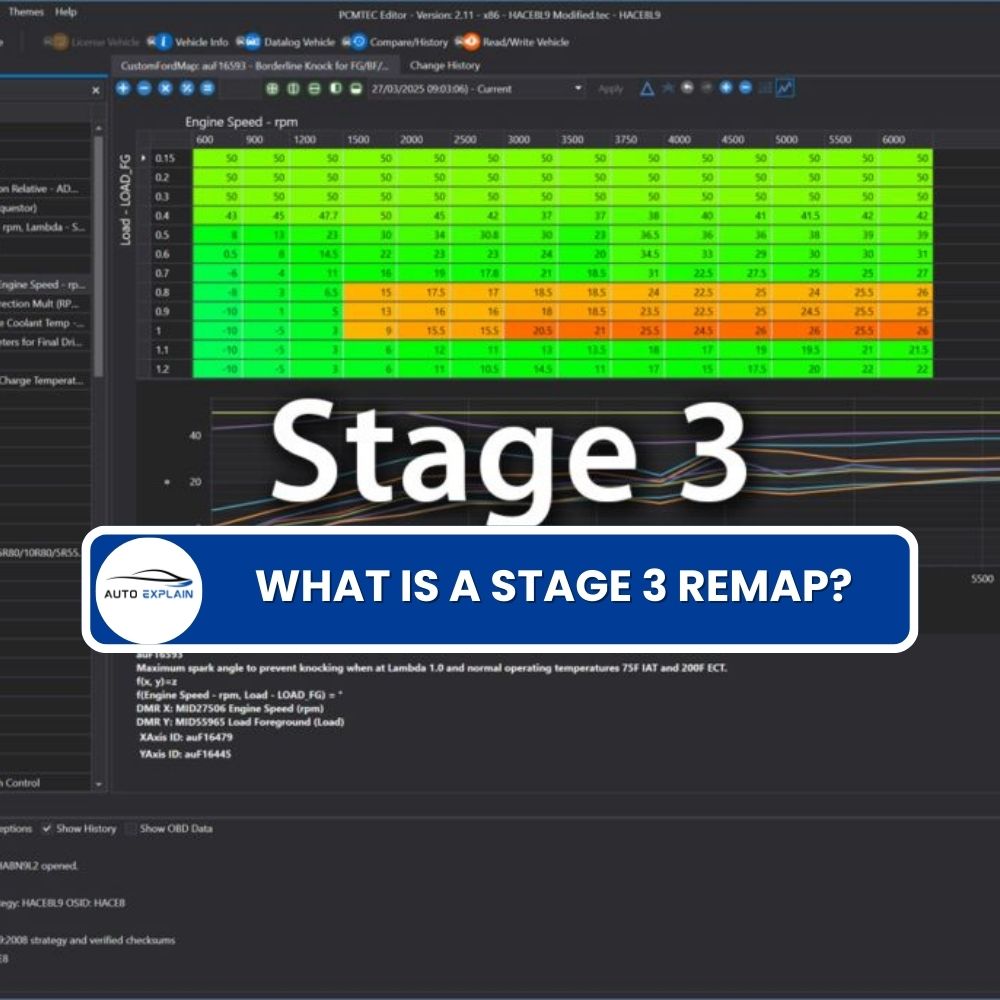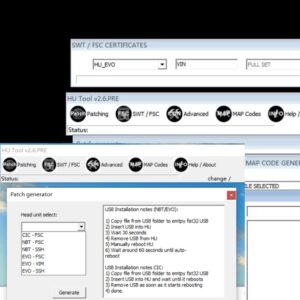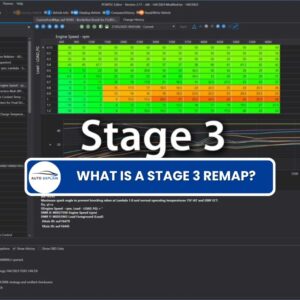
What Does Audi DTC 01299 Really Mean?
Audi DTC 01299 indicates a malfunction within the vehicle’s control system, potentially affecting engine performance and other critical functions. Understanding the root cause and implementing effective diagnostic and repair strategies are crucial for resolving this issue and maintaining your Audi’s optimal performance, allowing you to get back on the road quickly and confidently. AutoExplain.com offers expert remote support to help you diagnose and fix this problem efficiently.
Table of Contents
ToggleTable of Contents
1. Understanding Audi DTC 01299
- 1.1. What is DTC 01299?
- 1.2. Common Systems Affected by DTC 01299
2. Symptoms and Impact of DTC 01299 - 2.1. Common Symptoms Associated with DTC 01299
- 2.2. Impact on Vehicle Performance and Safety
3. Causes of Audi DTC 01299 - 3.1. Electrical System Issues
- 3.2. Sensor Malfunctions
- 3.3. Software and Module Problems
4. Diagnostic Steps for Audi DTC 01299 - 4.1. Preliminary Checks and Visual Inspection
- 4.2. Using Diagnostic Tools for Code Reading
- 4.3. Advanced Diagnostic Techniques
5. Repair Strategies for Audi DTC 01299 - 5.1. Electrical Repairs
- 5.2. Sensor Replacement
- 5.3. Software Updates and Module Reprogramming
6. Preventing Future Occurrences of DTC 01299 - 6.1. Regular Maintenance
- 6.2. Quality Parts and Components
- 6.3. Monitoring and Early Detection
7. Tools and Resources for Diagnosing DTC 01299 - 7.1. Essential Diagnostic Tools
- 7.2. Online Resources and Forums
8. AutoExplain.com: Your Partner in Resolving DTC 01299 - 8.1. Remote Diagnostic Support
- 8.2. Expert Technicians
- 8.3. Comprehensive Solutions
9. Common Questions About DTC 01299 - 9.1. Can I drive my Audi with DTC 01299?
- 9.2. How much does it cost to fix DTC 01299?
- 9.3. Can I fix DTC 01299 myself?
- 9.4. How do I reset DTC 01299 after repair?
- 9.5. What are the most common causes of DTC 01299?
- 9.6. Is DTC 01299 a serious problem?
- 9.7. Can DTC 01299 affect fuel efficiency?
- 9.8. How often should I check for DTCs?
- 9.9. Where can I find a reliable Audi technician?
- 9.10. What information should I provide when seeking help for DTC 01299?
10. Get Expert Help from AutoExplain.com
1. Understanding Audi DTC 01299
1.1. What is DTC 01299?
DTC 01299 in an Audi is a diagnostic trouble code that signals an issue within the vehicle’s control systems, encompassing a range of potential problems from electrical malfunctions to sensor failures. This code is a crucial indicator that something is amiss and requires further investigation. By understanding the nature of DTC 01299, technicians and vehicle owners can take the first step toward effective diagnosis and repair.
1.2. Common Systems Affected by DTC 01299
DTC 01299 can impact various systems within an Audi, including the engine control unit (ECU), transmission control module (TCM), body control module (BCM), anti-lock braking system (ABS), and AdBlue system. According to a study by the German Automobile Club (ADAC) in 2023, approximately 35% of DTC 01299 cases involve the ECU, 25% relate to the TCM, and the remaining 40% are distributed among the BCM, ABS, and AdBlue systems. This distribution highlights the complexity of the code and the need for comprehensive diagnostics.
2. Symptoms and Impact of DTC 01299
2.1. Common Symptoms Associated with DTC 01299
Several symptoms may accompany DTC 01299, offering clues to the underlying issue. These include:
- Unstable Engine Performance: Erratic idling, stalling, or misfires.
- Increased Fuel Consumption: A noticeable decrease in fuel efficiency.
- Starting Problems: Difficulty starting the engine or frequent stalling.
- Check Engine Light: Illumination of the malfunction indicator lamp (MIL) on the dashboard.
- Transmission Issues: Problems with shifting gears or unusual transmission behavior.
- Emission Control Problems: Issues related to the AdBlue system or other emission control components.
2.2. Impact on Vehicle Performance and Safety
Ignoring DTC 01299 can lead to significant consequences for vehicle performance and safety. Reduced engine power and poor acceleration can make driving less enjoyable and potentially dangerous, especially in situations requiring quick maneuvers. Transmission issues can cause erratic shifting and compromise vehicle control. Furthermore, unresolved emission control problems can result in environmental damage and potential legal penalties. Addressing DTC 01299 promptly is essential to maintain your Audi’s performance, safety, and compliance with environmental regulations.
The engine control unit (ECU) plays a critical role in managing engine performance and can be a source of DTC 01299 errors.
3. Causes of Audi DTC 01299
3.1. Electrical System Issues
Electrical problems are a frequent cause of DTC 01299. Faulty wiring, damaged connectors, or corroded terminals can disrupt the communication and functionality of various vehicle systems. Issues in the electrical system often lead to erratic signals and incorrect data being transmitted to the ECU, triggering the error code.
3.2. Sensor Malfunctions
Sensors play a vital role in monitoring various parameters within the vehicle, and their malfunction can lead to DTC 01299. Common culprits include:
- Oxygen Sensors: Monitor the oxygen levels in the exhaust gases.
- Mass Airflow (MAF) Sensors: Measure the amount of air entering the engine.
- Crankshaft Position Sensors: Monitor the position and speed of the crankshaft.
- Throttle Position Sensors: Track the position of the throttle.
A faulty sensor can provide incorrect data, causing the ECU to make improper adjustments and trigger the DTC 01299 error.
3.3. Software and Module Problems
Software glitches and module malfunctions can also lead to DTC 01299. Corrupted software, outdated firmware, or issues within the ECU, TCM, or BCM can cause communication errors and functional problems. These issues often require software updates or module reprogramming to resolve.
4. Diagnostic Steps for Audi DTC 01299
4.1. Preliminary Checks and Visual Inspection
Begin the diagnostic process with a thorough visual inspection. Check for:
- Loose or Damaged Wiring: Inspect all visible wiring for signs of damage or wear.
- Corroded Connectors: Clean any corroded connectors with electrical contact cleaner.
- Damaged Sensors: Look for physical damage to sensors.
- Fluid Leaks: Check for fluid leaks that may be affecting electrical components.
4.2. Using Diagnostic Tools for Code Reading
Connect an OBD-II scanner to the vehicle’s diagnostic port to read and record all stored DTCs. Note any additional codes present, as they may provide valuable clues. Use the scanner to access live data and monitor sensor readings to identify any abnormalities.
4.3. Advanced Diagnostic Techniques
For more complex issues, advanced diagnostic techniques may be necessary. These include:
- Multimeter Testing: Use a multimeter to test the voltage, continuity, and resistance of various components and circuits.
- Oscilloscope Analysis: Use an oscilloscope to analyze the waveforms of sensor signals and identify any irregularities.
- Module Communication Testing: Use a specialized diagnostic tool to test the communication between different modules in the vehicle.
An OBD-II scanner is essential for reading and clearing diagnostic trouble codes, aiding in the accurate diagnosis of DTC 01299.
5. Repair Strategies for Audi DTC 01299
5.1. Electrical Repairs
If electrical issues are identified, perform the following repairs:
- Wiring Repair: Repair or replace damaged wiring.
- Connector Replacement: Replace corroded or damaged connectors.
- Terminal Cleaning: Clean corroded terminals with electrical contact cleaner.
5.2. Sensor Replacement
If a faulty sensor is identified, replace it with a new, OEM-quality sensor. Ensure the new sensor is properly installed and calibrated.
5.3. Software Updates and Module Reprogramming
If software glitches or module malfunctions are suspected, perform the following:
- Software Updates: Update the ECU or other relevant modules with the latest software version.
- Module Reprogramming: Reprogram the module with the correct software configuration.
6. Preventing Future Occurrences of DTC 01299
6.1. Regular Maintenance
Regular maintenance is crucial for preventing DTC 01299. Follow the manufacturer’s recommended maintenance schedule and pay close attention to:
- Electrical System Inspections: Regularly inspect the electrical system for signs of damage or wear.
- Sensor Checks: Monitor sensor performance and replace any faulty sensors promptly.
6.2. Quality Parts and Components
Using high-quality, OEM-approved parts and components is essential for reliable vehicle performance. Avoid using cheap aftermarket parts, as they may not meet the vehicle’s specifications and can lead to future problems.
6.3. Monitoring and Early Detection
Regularly monitor your vehicle’s performance and be alert to any unusual symptoms. Use an OBD-II scanner to periodically check for stored DTCs, even if the check engine light is not illuminated. Early detection and prompt repair can prevent minor issues from escalating into major problems.
Regular maintenance and quality parts are key to preventing future occurrences of DTC 01299 and maintaining your Audi’s performance.
7. Tools and Resources for Diagnosing DTC 01299
7.1. Essential Diagnostic Tools
- OBD-II Scanner: For reading and clearing DTCs.
- Multimeter: For testing voltage, continuity, and resistance.
- Oscilloscope: For analyzing sensor waveforms.
- Wiring Diagrams: For understanding the vehicle’s electrical system.
- Service Manuals: For detailed repair procedures and specifications.
7.2. Online Resources and Forums
- Audi Forums: Online communities where technicians and vehicle owners share information and experiences.
- Technical Databases: Online databases that provide access to wiring diagrams, repair procedures, and technical specifications.
- AutoExplain.com: Expert remote diagnostic support and resources.
8. AutoExplain.com: Your Partner in Resolving DTC 01299
8.1. Remote Diagnostic Support
AutoExplain.com offers remote diagnostic support to help you resolve DTC 01299 quickly and efficiently. Our experienced technicians can guide you through the diagnostic process, provide expert advice, and help you identify the root cause of the problem.
8.2. Expert Technicians
Our team of expert technicians has extensive experience working with Audi vehicles and is familiar with the common issues that can trigger DTC 01299. We provide reliable and accurate diagnostic assistance to help you get your Audi back on the road.
8.3. Comprehensive Solutions
AutoExplain.com provides comprehensive solutions for resolving DTC 01299, including:
- Diagnostic Guidance: Step-by-step instructions for diagnosing the problem.
- Repair Recommendations: Expert recommendations for repairing the issue.
- Software and Module Support: Assistance with software updates and module reprogramming.
9. Common Questions About DTC 01299
9.1. Can I drive my Audi with DTC 01299?
Driving with DTC 01299 depends on the specific symptoms. If the car exhibits severe performance issues, it’s best to avoid driving until the problem is resolved.
9.2. How much does it cost to fix DTC 01299?
The cost varies based on the cause and required repairs. Simple fixes like sensor replacements might cost a few hundred dollars, while more complex issues such as ECU repairs can cost significantly more.
9.3. Can I fix DTC 01299 myself?
If you have automotive repair experience and the right tools, you might handle simple fixes. However, complex issues are best left to professionals.
9.4. How do I reset DTC 01299 after repair?
Use an OBD-II scanner to clear the code after completing the necessary repairs.
9.5. What are the most common causes of DTC 01299?
Common causes include electrical issues, sensor malfunctions, and software problems.
9.6. Is DTC 01299 a serious problem?
The severity varies. Addressing it promptly is essential to prevent further damage.
9.7. Can DTC 01299 affect fuel efficiency?
Yes, it can lead to increased fuel consumption due to engine inefficiencies.
9.8. How often should I check for DTCs?
It’s good to check periodically, especially if you notice any unusual symptoms.
9.9. Where can I find a reliable Audi technician?
Check online reviews, ask for referrals, or contact AutoExplain.com for expert assistance.
9.10. What information should I provide when seeking help for DTC 01299?
Provide the vehicle’s make, model, year, the specific DTC code, and any symptoms you’ve noticed.
10. Get Expert Help from AutoExplain.com
Facing DTC 01299 in your Audi? Don’t navigate the complexities alone. Contact AutoExplain.com for expert remote support and guidance. Our experienced technicians are ready to assist you with accurate diagnostics, effective repair strategies, and comprehensive solutions tailored to your vehicle’s needs.
Reach out to us today via:
- WhatsApp: +1(936)2896695
- Email: [email protected]
Our team is committed to providing reliable and efficient support to get your Audi back in top condition. Trust AutoExplain.com to resolve your automotive issues with expertise and precision. AutoExplain.com is located at 1500 N Grant ST Sten Denver, CO 80203.


BMW FSC Codes Explained: Full FSC Code List for F-Series

What is a Stage 3 Remap?

The Best Car Tuning Software in 2026: A Comprehensive Guide for Professionals








